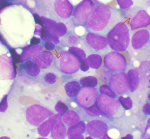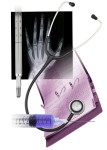I am not exactly sure of what prompted me to do it, but I began keep ing a tally of all the pro nounce ments I have done. A pronouncement is that act in which a doctor officially declares a person to be dead. Some deaths are theatric spec tac les involving beep ing mon i tors, electric shocks, and crack ing chest car ti lage. These tend to be chaotic, gritty, and conclusive as in the TV shows, sometimes ending with a dis traught physician intoning, “Time of death. . . .” However, most pro nounce ments … [Read more...] about Rituals of Annotation
redemptive healthcare
The Pursuit of Suffering
I watched the grainy, blocky video in silence. My friend was singing “Land slide” and I felt a cer tain taut ness in my eye brows and a pecu liar heavi ness in the cor ners of my mouth. By now it had become a famil iar feel ing, this phys i cal expres sion of sorrow. Can the child within my heart rise above Can I sail through the chang ing ocean tides Can I han dle the sea sons of my life?” ~Fleet wood Mac, “Land slide,” The Dance, 1997 Sonia Lee '06, whose mel low and res o nant voice was … [Read more...] about The Pursuit of Suffering
Introductions: Dissection of body and soul
Medical school is mostly boring and the parts that are not are often tragic, which is why few people write about the experience. Prospects facing newly-minted residents and attendings are not much better, as the overwhelming secularization of a discipline once seen as divine has fueled financial exploitation, divisive politics, and increasing frustration, cynicism, and disillusionment in those who once sought something more meaningful. While there have been exponential gains in scientific understanding and treatment … [Read more...] about Introductions: Dissection of body and soul


